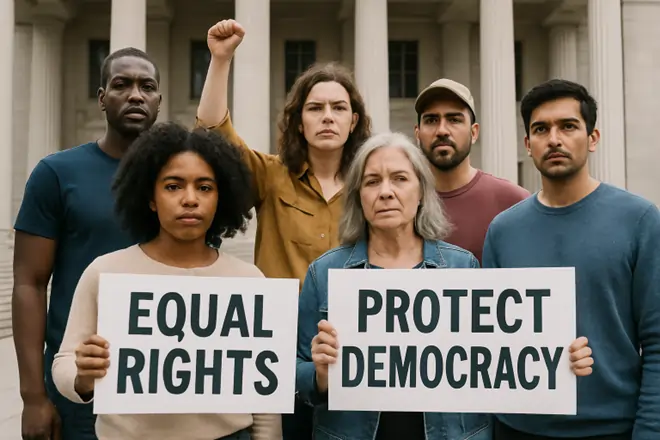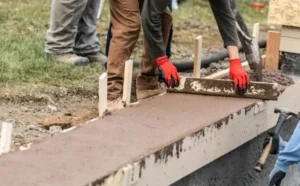The civil rights movement’s legacy endures in ongoing efforts to dismantle barriers to equality, including litigation, policy debates, and grassroots organizing, reminding us that democracy must be actively defended. Understanding these challenges helps citizens participate in creating a genuinely inclusive democracy. Today’s civil rights landscape is shaped by setbacks like voter suppression, which threaten democratic rights, especially for communities of color and the economically marginalized. These are addressed through advocacy, legal battles, and legislative strategies aimed at upholding justice. Civil rights issues are now central in public discourse, with citizens urged to stay informed and engaged as judicial decisions influence policy and civil liberties.
Democracy is not static—its health depends on ongoing engagement, legal vigilance, and a resolute commitment to justice. The fight for civil rights is a struggle that demands constant attention across generations, and threats facing democracy today are deeply intertwined with the preservation of equal rights and participation. From the classroom to the courts, and from local communities to the halls of Congress, advocates are drawing upon the lessons of the past to confront new challenges. For a deeper look into the work and dedication that fuel this mission, organizations like the NAACP Legal Defense Fund illuminate the path forward: https://www.naacpldf.org/we-were-built-for-this-fight-for-democracy/. Ultimately, safeguarding democracy requires not only institutional action but also the courage of individuals who refuse to remain silent in the face of injustice.
Current Challenges to Civil Rights
The United States faces persistent, and sometimes intensifying, challenges to civil rights. Tactics such as voter ID laws, purges of voter rolls, and reductions in polling locations form the latest wave of efforts that disproportionately target minorities and disenfranchise vulnerable populations. Recent years have seen an escalation of voting restrictions nationwide, posing direct threats to the fair functioning of American democracy.
Attempts to curtail affirmative action and restrict teaching about racial inequality further complicate the fight. Such measures not only limit opportunities but also undermine historical understanding and the impetus for change. The erosion of foundational legal protections creates new obstacles for civil rights advocates, requiring both an immediate response and an enduring commitment to protecting the progress already achieved.
Legal Battles and Landmark Cases
Landmark court cases have always played a pivotal role in shaping civil rights. Ongoing litigation, such as Louisiana v. Callais, brings national attention to issues like racial gerrymandering and equal representation. Through these legal contests, the robustness of statutes like the Voting Rights Act is put to the test—reinforcing the principle that every citizen deserves a voice. These cases also highlight the importance of maintaining judicial independence and transparency in protecting minority rights, as reported in coverage from respected publications.
The outcomes of such landmark cases can set transformative precedents. Whether the rulings favor or hinder progress, they leave an indelible mark upon the civil rights landscape, affecting millions of lives and future generations’ access to democracy.
The Role of Advocacy Groups
Advocacy organizations play a crucial role beyond opposing laws; they inspire and mobilize communities. Their core missions encompass legal advocacy, legislative lobbying, public education, and direct support for individuals facing discrimination. Notable organizations, such as the NAACP Legal Defense Fund, the Southern Poverty Law Center, and the American Civil Liberties Union, serve as fundamental pillars in the fight for justice, systematically addressing every infringement on rights with organized, expert responses. These groups often collaborate, enhancing the voices of communities and demanding accountability from leaders. Their combined efforts facilitate both immediate improvements and enduring systemic changes, ensuring that progress is realized not only in legal settings but also in the daily lives of individuals affected by injustice.
Legislative Efforts and Policy Changes
Recent years have seen state-level innovation in the form of State Voting Rights Acts (State VRAs), which act as safeguards where federal oversight has waned. These legislative measures aim to prevent discrimination and ensure the right to vote, particularly for historically marginalized communities. States like New York and Virginia have enacted robust protections, leading the way toward a patchwork but promising future for voter equality.
The passage, strengthening, or defense of such laws underscores an evolving landscape—a recognition that true democracy cannot exist when access to participation is unequally distributed.
Grassroots Movements and Community Engagement
Effective civil rights advocacy often begins with grassroots energy. Community-led initiatives have driven historic change—empowering residents, fostering local leadership, and advocating for reforms. Whether in the form of get-out-the-vote campaigns, public forums, or targeted educational efforts, grassroots movements light the path toward inclusive policy and government accountability.
These campaigns, paired with ongoing national advocacy, ensure that citizens are not only aware of their rights but equipped to take action when those rights are threatened.
The Impact of Judicial Decisions
Judicial rulings at every level—from local courts to the Supreme Court—carry tremendous weight in the civil rights arena. The affirmation or dismantling of policies through the judiciary shapes not just short-term outcomes but the course of American democracy itself. Understanding these decisions and their legal and ethical reasoning is essential for advocates working toward a just future.
Educational Initiatives and Public Awareness
Education remains a cornerstone in the safeguarding of civil rights. Programs that expand understanding of both past and current struggles against inequality foster empowerment and engagement. Schools, advocacy organizations, and community centers all play a vital role in nurturing an informed electorate capable of advocating for justice.
Public awareness campaigns, including those that highlight ongoing disparities and inspire civic action, have been central to positive change throughout U.S. history.
Looking Ahead: The Future of Civil Rights
The future of civil rights is shaped by vigilance, adaptability, and collective action. While threats to democracy persist, so too does the resolve of individuals and organizations to confront them head-on. By supporting legal strategies, legislative innovation, community action, and robust education, citizens help realize the promise of equality.
Ultimately, democracy’s survival depends on both institutional resilience and the ongoing, informed participation of its people. The path forward is one of engagement, resistance to complacency, and hope for a more just tomorrow.
Read more: Automating Daily Operations in Short-Term Vacation Rentals – Croudmomentum.com
Preventing Common Roofing Problems: Essential Maintenance Tips – Croudmomentum.com
How Dress-Casual Shoes Blend Style with Comfort – Croudmomentum.com








